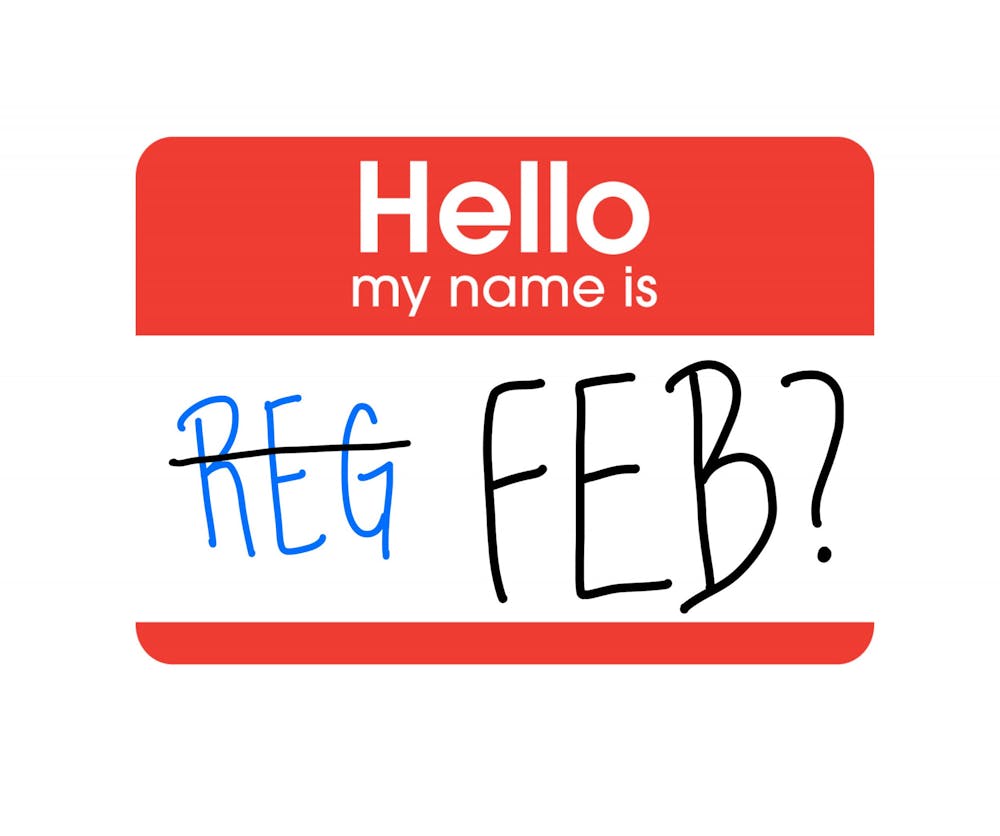As my graduation approached, I thought a lot about what it meant to be a Feb as someone who didn’t start as one. Firstly, it means that I can’t downhill ski. As a member of the largest Feb class to date, I am one of those Covid-canceled-my-semester-abroad Febs. On Saturday February 13, 2022 I graduated alongside 189 of my peers. Of the 190 students who graduated, only 80 of those students began as part of that February admit class.
Though students have long been able to take a semester off or complete sufficient credits to graduate early, this flow of students between “Feb” and “reg” classes has been heightened by the pandemic. In the fall, the Campus ran a story exploring the evolving dynamics of Feb culture as more students have “Febbed” themselves in the past two years. One student in the piece expressed feeling like a “fake Feb” because she didn’t enter the school as one. As a resident “fake Feb,” I found that label to be a misnomer.
Nowhere was this shift in class years more evident than at my graduation, where those of us who did not begin our time at Middlebury as part of the Feb class comprised the majority of the graduating class. Though Middlebury has long imposed its image of what the Feb identity looks like, it’s time for a rebranding.
It was hard not to cringe as I watched my own graduation ceremony.
“What makes being a Feb so special is our unique drive and enthusiasm, coupled with our small class size and our late arrival to Middlebury, which created a tight knit community that shares the common experience of a Febmester, and a common passion for adventure and exploration. Never has this been truer than for the class of 2021.5” student speaker Kaleb Patterson said to the graduating class.
Kaleb isn’t entirely wrong. These qualities and factors once were what made being a Feb so special. But times have changed. In fact, more than half of us who sat listening to that speech did not arrive late to Middlebury nor did we take an intentional gap semester.
Though Kaleb’s speech captured much of the conflicted emotions of graduating, particularly during a pandemic, it also reinforced many of the Feb stereotypes. The words ‘unique’ and ‘special,’ words that are overfed to Febs by the college, were plentiful in the speech.
I began working for the Admissions Office as a tour guide and later became a senior admissions fellow for the office. I worked there long enough to know how we explain and market Febs to prospective students. Febs are go-getters and as we love to say, they aren’t afraid to do things a little differently. As one of our admissions counselors is fond of saying in every one of his information sessions, being a Feb is a chance to get off the treadmill and try something new. While some of us got off the treadmill deliberately and for others of us it was more an experience of tripping, falling, and getting knocked off, we all graduated, and thus, we are all Febs.
Imbued in Feb exceptionalism and gatekeeping is not only an unhealthy sense of one's uniqueness, but an inability to recognize the privilege that comes with such a notion. A long-time stereotype of the Feb has been a white, wealthy and outdoorsy student. The admissions office does not publicly report official statistics on the Feb class, nor does it include the Feb class when reporting demographic statistics for incoming classes. This lack of transparent data is telling.
The class of 2021.5 graduation marked the first Feb graduation where the original Febs were in the minority but it may not be the last. Ultimately, many of us find ourselves graduating with a “.5” at the end of our class year despite our initial plans. It’s high time we abandon the stereotype and expand who we think of as a Feb.
Alexandra Burns is a member of the class of 2021.5.



![Copy of Editorial [Susanna] (3) (1) (2) (1) (1).JPG](https://snworksceo.imgix.net/mbc/04f15693-9c9d-4b21-a455-54589bf9770c.sized-1000x1000.JPG?w=1500&ar=16%3A9&fit=crop&crop=faces&facepad=3&auto=format)
